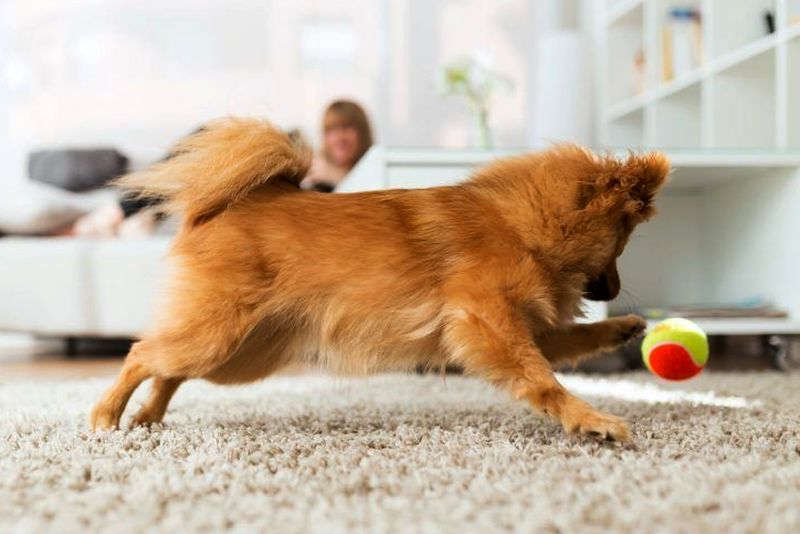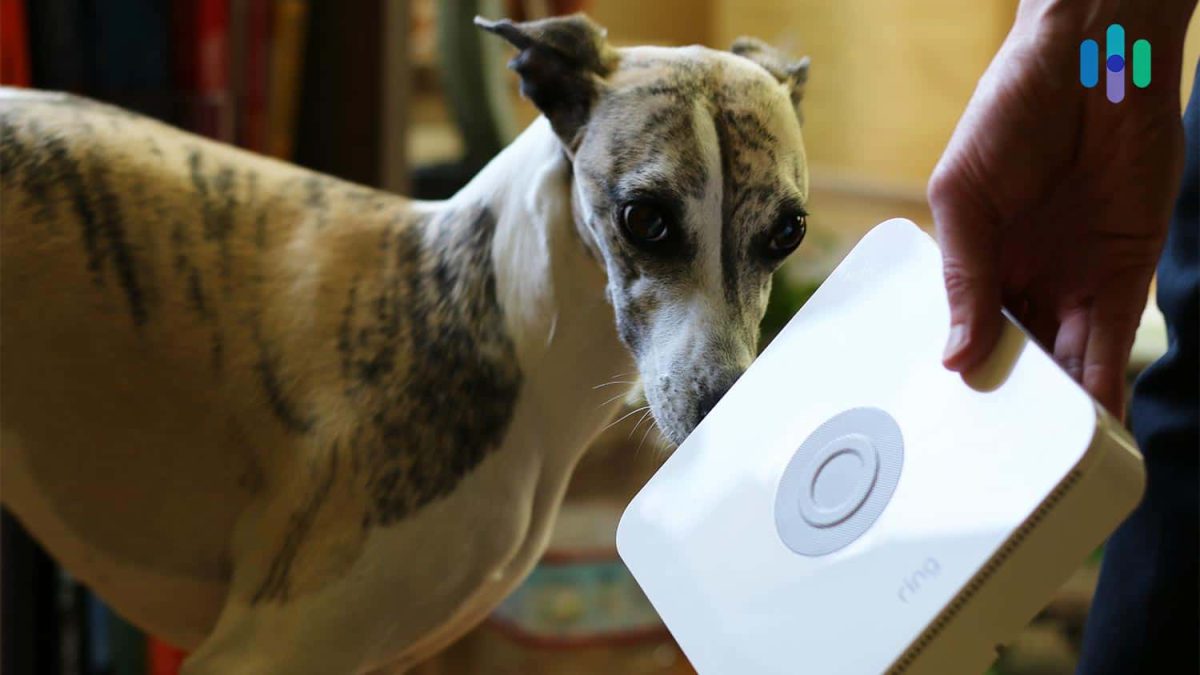Many people who have pets at home consult us when installing an alarm, as they have doubts about whether their pets will set off the alarm. Luckily, current pet-friendly security systems are prepared to be able to discriminate against our pets, preventing the pets themselves from activating the security system. In this article, we’re going to talk about pet-friendly security systems.
Table of Contents
ToggleWhat are pet-friendly security systems, and how do they work?
Perhaps the best home alarm systems for pets is the pet CCTV alarm since it is specifically designed for this case. Its system is quite similar to that of normal alarms, with some small differences.
Pet-Friendly Security Systems are primarily distinguished by passive infrared motion sensors, also known as pet-friendly PIRs. These detectors are created to detect movement through body heat and also check the changes that are taking place in the house.
However, their system is more sophisticated, and they can distinguish between an animal and a person. In other words, it would not be necessary to calibrate your alarm sensor to detect a specific weight because it is already designed to work by discriminating the presence of an animal.
This system works optimally with animals weighing up to 20 kg or measuring up to 50 cm. Unless you have a large and heavy pet, this alarm is a very comfortable option.

Does this system work with any pets?
The answer is yes, but with nuances. It is necessary to assess different realities, such as the type of house, the type of alarm and its possibilities, or the class and physiognomy of the pet.
If our companion animal is a large and heavy pet, the option of calibrating the sensors is not a viable solution since we will not be able to discriminate against a large and heavy animal because we will not receive the alarm alert if it is an actual intrusion.
The most advisable thing is to choose to adopt an exclusive space without sensors for the pet inside the home, a room, a patio, or the terrace, where the pet will remain while the pet-friendly security systems are activated.
The problem with cats is very different from that of the weight and size of the animal; the main difficulty that we encounter with these animals is their habits of play and constant activity. They tend to move and jump freely around the house causing the sensors to detect a suspicious volume change and, therefore, trigger the alarm system.
To avoid this problem, the best option is to adapt a space for the cat when there is no one at home and the alarm is activated.

Why the alarm can go off due to the presence of pets
Many home alarm devices come equipped with sensors that, when they detect motion, trigger an alert.
If we have a garden and we have perimeter detectors, they work in a very similar way. They emit a continuous beam that, when interrupted, triggers the alarm.
Knowing this, it’s easy to see why a home pet alarm might go off unintentionally. When you move within the detection field of the device, the alarm may mistake you for an intruder.
Tips for preventing your pet from setting off the alarm
1. Advanced technology: Install an alarm for a house with pets
The best advice, without a doubt, is to install pet-friendly security systems for a house with pets, since it is configured for these cases.
For example, some alarms detect the presence of the pet and do not send an alert to the Alarm Receiving Centre. In this way, you can be calm, and you will not have to be putting the effectiveness of the alarm at risk. If you are concerned about your budget to buy an advanced alarm system, you can read about the alarm system costs as well.
2. Place the devices higher than usual
Normally, our pet moves on the ground and does not have great height. To minimise the house alarm being triggered by mistake, we can place the detectors in a higher place.
Of course, many pets tend to climb on furniture or remain in elevated positions. In those cases, watch your animal’s climbing habits and don’t put the sensors near where it climbs.
3. Educate your pet well
This is another of the essential tips. Your pet must learn that there are places that he cannot access. Teach him that the places where the sensors are placed are not allowed. That will save a lot of inconvenience.
4. Use barriers and gates for animals
It is also convenient to install barriers and gates for animals at key points that may be affected. They are not expensive, and you can find them at any pet store.
5. Learn to set your alarm if you have pets
If your pet-friendly security systems allow it, decrease the sensitivity of its sensor so that it does not go off in the presence of a small weight. That way, even if your dog or cat walks in front of it, it won’t activate. This is because they work by capturing the volume; therefore, small animals will not trigger it.
6. Install Pet-Friendly Security Systems
If the problem is caused by other animals and not by your pet, an effective solution may be to install animal repellents near the sensors. Its radius of action is usually about 10 meters, so you won’t bother any neighbours’ pets and, in return, you’ll avoid false alarms.
Why should you consider buying pet-friendly security systems?
1. PIR sensors
An intelligent alarm is not only recommended for pet owners, but it is recommended in case you have animals at home, and the main reason is “peace of mind.” In this aspect, the main feature of the smart alarm, which stands out, is the cameras with PIR sensors.
A PIR camera is designed to take a snapshot, or sequence of snapshots (in jpeg format), of what the PIR sees in the room at the time of the alarm activation. The images are sent directly to your mobile device through the alarm application installed on your phone.
When a PIR camera is triggered—instead of the alarm going off for 20 minutes, bothering your neighbours, not to mention getting on your beloved pet’s nerves—you can see (in near real-time) if the activation is a true theft or if it has been the cat that has escaped from the place where you had left it, for example.
From your device, you can remotely disarm the alarm system and re-arm it. If you want to discover how alarm systems work, you can check out this article about how security alarm systems work as well.
2. Smoke and carbon monoxide detectors
You don’t know what will happen to your pet when you’re not at home, whether they go to the kitchen and cause a severe problem for them. But, when you have this alarm, the sensors will be activated in your absence, and if they detect any smoke or carbon monoxide, they will notify the monitoring centres, and they will immediately contact the local fire station department and send you a notification as well. Thus, pet-friendly security systems can rescue your beloved pet from the possibility of being poisoned by gas.
3. Flood detection sensors
These sensors are wireless, and you can use them in hard-to-reach places like putting them on washing machines, dishwashers, or anywhere that is at risk of flooding. to be aware of the possibility of a pipe bursting in your absence, which can put your pet at risk. If flooding happens, a notification will be sent to your phone and notify you to take immediate action.
Conclusion
The home alarm is essential for the security of our home. However, in a home with pets, it can be inconvenient since our dog or cat can activate the device and cause a false alert. In this article, we taught you how to prevent the pet CCTV from going off with pets at home. In addition, these pet-friendly security systems UK can provide the pet owner with facilities and sensors like PIR sensors, smoke and poisoning gas detection, and flooding detection sensors that can ensure your peace of mind when you are not at home.

